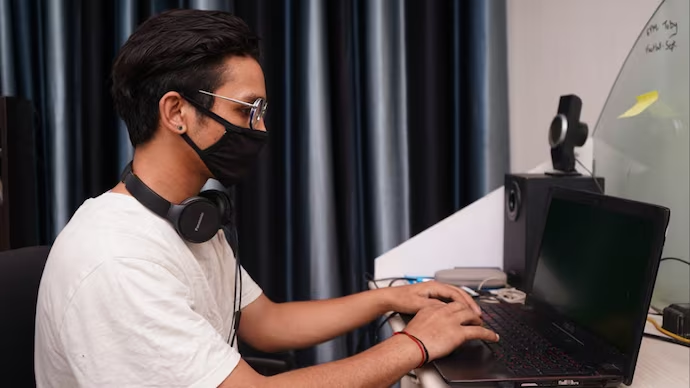Now Reading: AI Will Replace Many Jobs, But Not This One, Says AI Godfather Geoffrey Hinton
-
01
AI Will Replace Many Jobs, But Not This One, Says AI Godfather Geoffrey Hinton
AI Will Replace Many Jobs, But Not This One, Says AI Godfather Geoffrey Hinton

As artificial intelligence continues to reshape industries, Geoffrey Hinton — often called the “Godfather of AI” — has issued a strong warning: many jobs are at serious risk, and people should prepare for massive shifts in the job market. However, there’s one key human task that AI might never fully take over — and it’s something that goes beyond machines’ capabilities.
Who Is Geoffrey Hinton and Why His Words Matter
Geoffrey Hinton is one of the pioneers behind today’s AI revolution. His work on neural networks has been crucial in the development of modern AI tools. When someone like Hinton speaks about the future, tech experts, policymakers, and workers across the world pay attention.
Recently, he shared his concerns about how quickly AI is progressing — and how that might lead to widespread job losses.
Jobs That Could Be in Danger
Hinton believes that jobs involving routine thinking or repetitive tasks are the first to be replaced. This includes professions like:
- Call centre agents
- Legal assistants
- Office clerks
- Basic content writers
- Data entry operators
AI tools, according to him, are already proving more efficient in many of these roles. They work round the clock, make fewer errors, and cost less in the long run.
This warning is especially important for Tier 2 cities in India, where outsourcing and back-office jobs have created large-scale employment. Cities like Nagpur, Indore, and Coimbatore may see faster disruptions as companies begin to adopt AI-driven tools for cost-cutting.
But There’s One Task AI Can’t Replace
Despite the worry, Hinton also pointed out a silver lining: the ability to genuinely care for another human — like emotional support, compassion, and real-life empathy — remains a task AI cannot truly replicate.
He explained that professions involving emotional intelligence — such as nursing, therapy, and early childhood care — are much harder for machines to take over. These jobs involve understanding complex human feelings, offering comfort, and building trust — things that go beyond logic and data.
What This Means for India’s Workforce
In India, where millions rely on white-collar jobs for financial security, Hinton’s warning calls for serious thought. While major metro cities may adapt faster with upskilling programs and tech exposure, workers in smaller cities could face unexpected job shifts.
Experts suggest now is the time to focus on learning skills that AI can’t easily mimic — like creativity, complex problem-solving, and emotional intelligence. Embracing lifelong learning, upgrading digital literacy, and staying agile will be key for survival in the coming decade.
Conclusion
AI is no longer just a future concern — it’s a present reality. As Geoffrey Hinton reminds us, many jobs will fade away, but human qualities like care, emotion, and ethical judgment will still be needed. For India’s growing young workforce, especially beyond big cities, the message is clear: evolve, adapt, and focus on what makes us human.

























